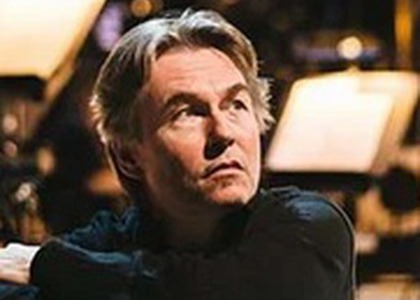> [Archived] Events

Classical-romantic tradition and contemporary novelties at the Nobel Prize Gala
The prestige associated with the Nobel Prizes is undoubtedly universal. The concert associated with the awards is an event that promises an exemplary show of force - the curiosity of music lovers is therefore joined by the enthusiasm of those interested in technological and cultural progress.
The Stockholm Concert Hall will host the event, which will feature the famousviolinist Julia Fischer with the Royal Stockholm Philharmonic Orchestra conducted by Esa-Pekka Salonen. The German soloist will perform the Concerto op. 77 in D major for violin and orchestra by Johannes Brahms, a true paragon of the Romantic violin repertoire - although after its 1878 premiere some critics joked that the work was not so much 'for the violin' as 'against the violin'; now absent from music seasons around the world, the concerto has been deemed unplayable by many renowned violinists.
The programme begins, however, with a piece by Luciano Berio - Four original settings of Luigi Boccherini's Ritirata notturna di Madrid. In 1780, the latter was a member of the court of Prince Luis, Count of Chinchón, son of Philip V of Spain. In this capacity, Boccherini signed the suite Musica notturna delle strade di Madrid, of which Berio took the seventh and last part - the Ritirata - and superimposed several versions of it to create a layered sound effect. Stylistically, the work remains firmly rooted in 18th-century idiom, raising (again) postmodern questions about authorship, text, interpretation and re-interpretation.
Gabriella Smith's Tumblebird Contrails is the work we'll hear after Brahms' Violin Concerto. The young American composer, born in 1991 in Berkeley, California, USA, is passionate about hiking, and the piece we will be able to hear on Friday 8 December is inspired by the spectacle of the Pacific Ocean as it can be seen in California on the Point Reyes Peninsula.
From the work written by the American composer in 2014, we then move on to a score that was composed more than a century ago: Maurice Ravel's Daphnis and Chloé Suite II. The mastery of the French composer's orchestration can be seen in this excerpt from the choreographic suite that the musician created at Sergei Diaghilev's commission in 1912. Although he rejected the label of Impressionism, with which he is still associated today, Ravel's music was evocative - so the choice to end the Nobel Prize Gala with an opus from his catalogue is appropriate.
The performance on December 8th at the Stockholm Concert Hall is thus a tribute both to the classical-romantic tradition and to modern and contemporary novelties - an event worthy of the prestige associated with the Nobel Prizes, then!
Translated by Bianca-Daniela Penaru,
University of Bucharest, Faculty of Foreign Languages and Literatures, MTTLC, year I
Corrected by Silvia Petrescu














